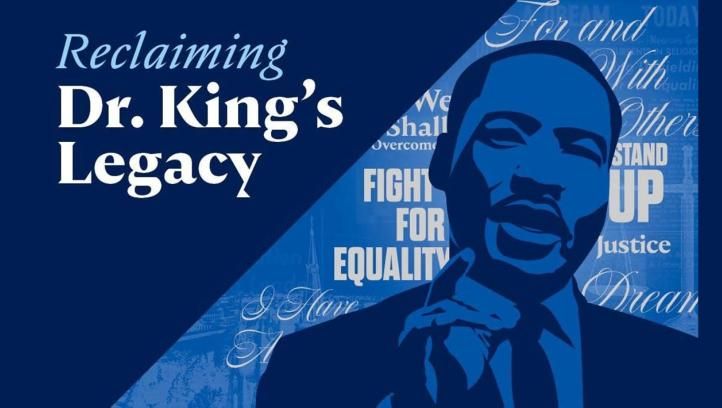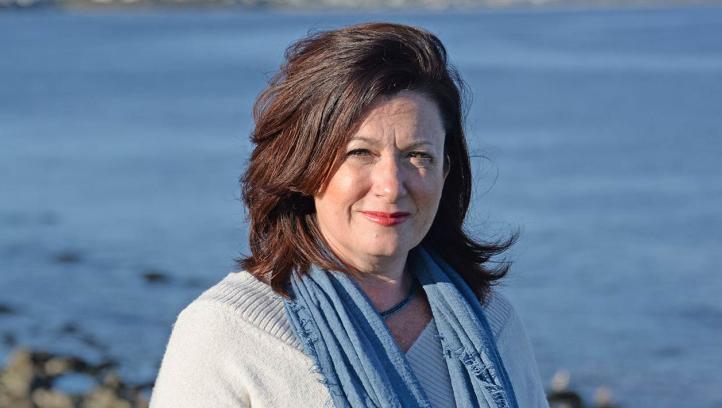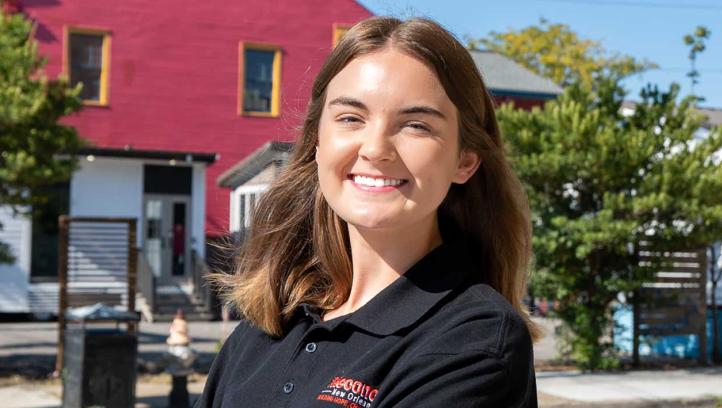
Opening doors for refugees
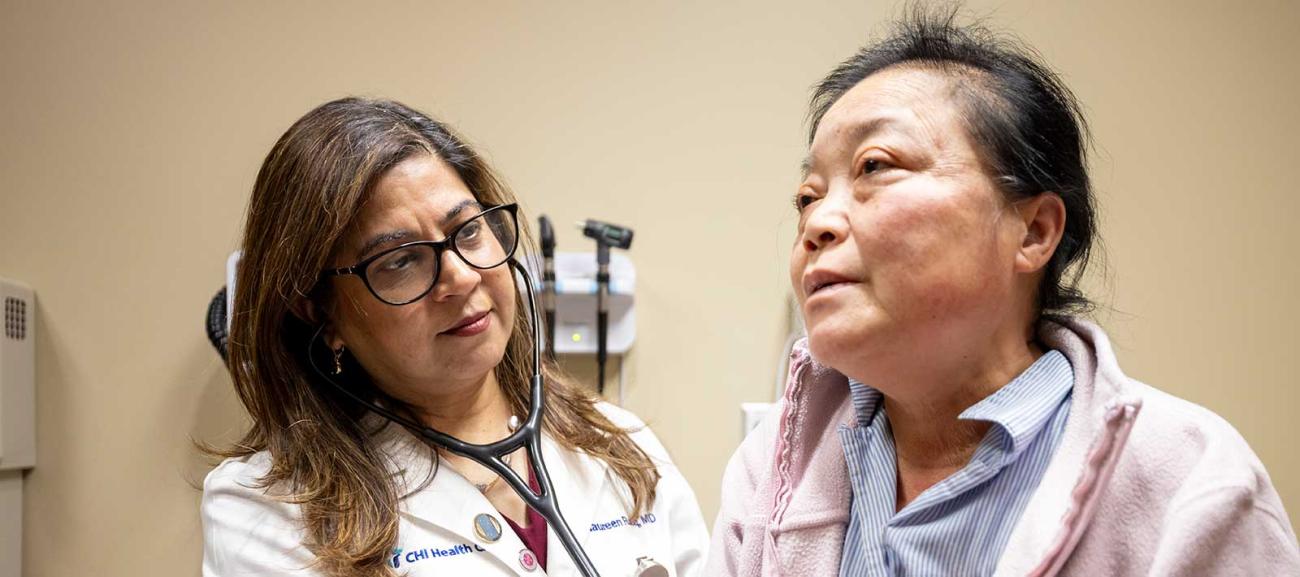
Naureen Rafiq, MD, left, treats patient Lah Say, a refugee from Burma, at the CHI Health Creighton University Medical Center – University Campus.
The word “refugee” is heard so often today that it is easy to become numb to the human suffering and trauma it embodies.
It means fleeing home and community because of grave danger, crossing borders at great peril, often living in an overcrowded camp in a different land, and then, ultimately, if one is fortunate, beginning a new life in a foreign country but with few belongings, no source of income, and an unfamiliar language and customs.
The Creighton community’s involvement with the refugee experience — on and off its campuses and in its classrooms and clinics — is multifaceted and growing. These pages offer a glimpse of some of the ways Creighton students, faculty, staff and alumni are fulfilling one of the Jesuits’ Universal Apostolic Preferences by being committed to caring for migrants, displaced persons, refugees and victims of wars.
Pharmacy Student Wants to ‘Be the Change’
For Omaima AL Garaawi, a pharmacy student on Creighton’s Phoenix campus, the refugee experience is both personal and inspirational. The difficulties she and her family faced escaping Iraq when she was 15 drastically altered her life. They are also shaping her future as a healthcare professional.
“Our decision to leave Iraq was driven by the harsh realities of living in a conflict zone,” AL Garaawi says. “The fear of bombings, attacks and the general instability made everyday life a struggle.
“When I was in elementary school, a car bomb exploded near my school. The goal was to kill as many children as possible. Lucky for me, I was still in my classroom.
“I remember all the windows shattered on top of our heads. My best friend got injured and a small piece of glass went inside her beautiful green eyes. I still remember the fear we all faced that day.”
The family applied for asylum in the U.S. in 2009, and they arrived in Phoenix four years later after asylum was granted.
“Lucky for us, we had friends who lived in Phoenix. We were able to contact them, and they picked us up from the airport. Not many families are that fortunate to know people in the United States. Many families go to refugee camps and go from there.
“The most difficult aspect of the choice to leave was the emotional toll,” AL Garaawi says. “Leaving behind our home, friends and the life we once knew was a heartbreaking decision. The uncertainty of the future and the challenges of starting anew in a foreign land added to the difficulty.”
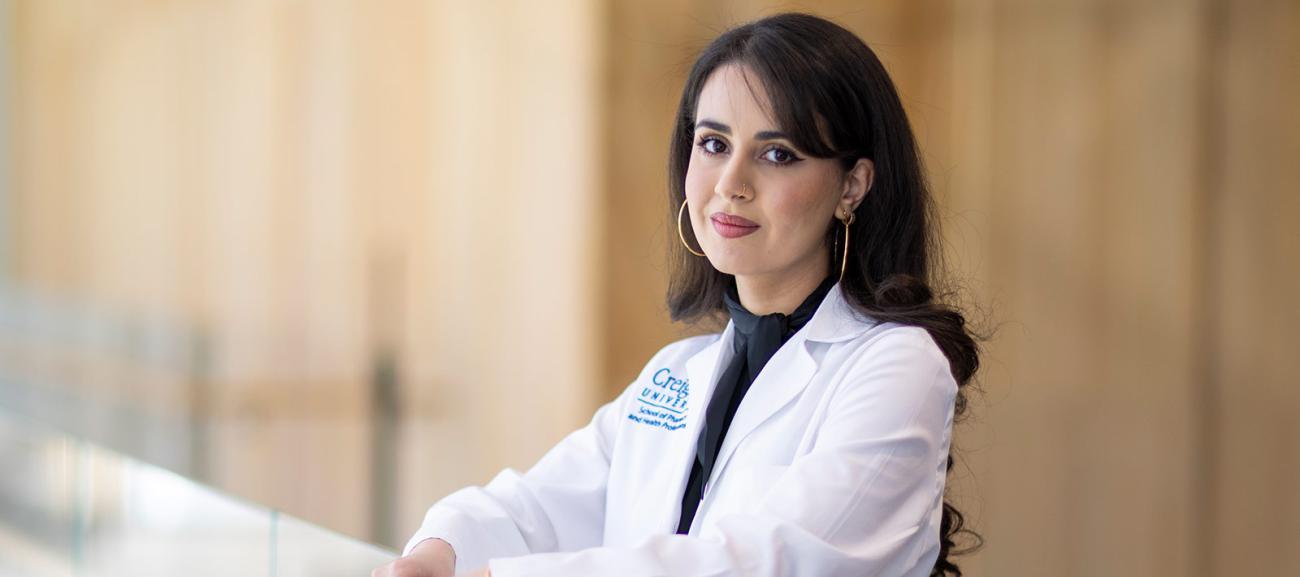
She says she most missed the sense of belonging and “the feeling of being rooted in a place with a shared history and culture.
“The decision to leave was complex, driven by our pursuit of safety and a better future, but it came at the cost of leaving behind a significant part of our lives.”
One of those she left behind was her godfather, who later was killed in a terrorist bombing of the carpet-weaving factory where he worked. Despite this great loss, her godfather’s advice inspires and shapes her educational and professional journey.
He advised her to “Be the change.” He emphasized the importance of raising awareness and making a positive impact in the lives of others.
“His words served as a guiding light, influencing my decision to pursue pharmacy as a means to contribute to healthcare and bring about positive change.”
Her interest in healthcare grew during her family’s refugee journey as she witnessed families, especially women and children, struggling to access basic health services. The lack of resources and challenging circumstances made it difficult to receive proper medical attention, highlighting the disparities in access.
One way she has combined her interest in healthcare with her desire to help others is through the American Dream Academy, an initiative to empower people, including refugees, by providing resources and guidance on education and employment opportunities.
She volunteered as a translator and panelist at weekend workshops and continues to serve as a mentor to Syrian high school students. “The American Dream Academy gave me a platform to share my experiences and insights, particularly in the field of pharmacy, with other refugees,” AL Garaawi says.
Professor ‘Blessed’ to Care for Refugees
Naureen Rafiq, MD, associate professor in the School of Medicine, feels that same calling. But addressing the health and social needs of refugees wasn’t something she envisioned when she dreamed of becoming a physician.
“I never thought of working with the refugee population,” Rafiq says. “But when my Creighton residency program allowed me to work with refugees, I felt completely at ease to care for them because I could also see myself in some of the patients.”
Rafiq leads medical residents in providing healthcare and screenings to refugees in Omaha. She also recently presented on the topic at the Institute for Population Health Symposium held at Creighton in October 2023.
The Department of Family Medicine in the School of Medicine “has had the privilege to care for refugee families since 2008,” Rafiq says, adding that refugee resettlement to the U.S. is traditionally offered to “the most vulnerable cases, including women and children at risk, women heads of households, the elderly, survivors of violence and torture and those with acute medical needs.”
A Pakistani American, she came to the U.S. after graduating from medical school and getting married. “Pakistan lacked the specialty of family medicine at that time, and America gave me the perfect opportunity to be a family physician,” she says. “I completed my residency at Creighton and was offered the position to stay here as faculty. I interviewed at many other places, but wherever I went, I would say, ‘This is a good program, but this is not Creighton.’”
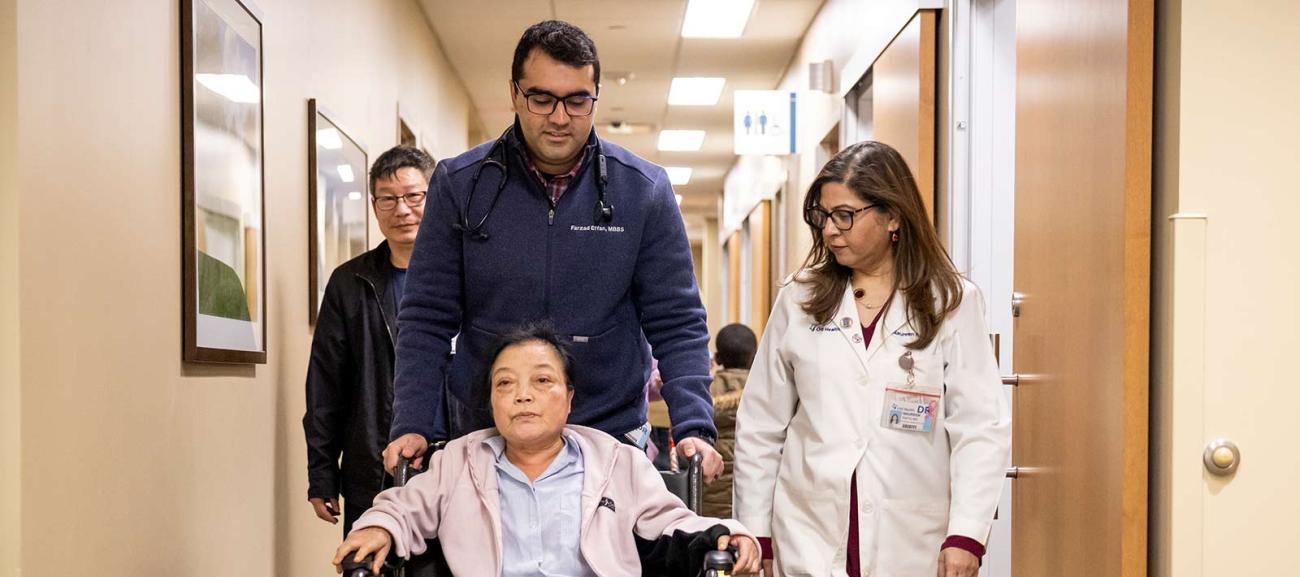
For the last 17 years, caring for refugees as part of the residency clinic has been a major part of the healthcare she delivers.
“I feel blessed to be part of refugee care. There are about 43 languages that are spoken in our clinic and the patients are from so many parts of the world, including Burma, Nepal, Somalia, Sudan, Afghanistan, Iraq, Ukraine and more.
“They are scared and worried, harboring dreams of a free and fair world where they can live peacefully. Health literacy is one of the most important aspects of their lives that was neglected while they lived in refugee camps.”
She was particularly touched by an Afghan family recently. “A dad brought his seven kids, six girls and a boy, for physicals. While we were talking, I asked what grades the children were in and the dad looked at me with tears and said, ‘I am here, doctor, because I want my girls to get an education as much as they want. They did not go to school back home. I want to see them become doctors like you one day.’”
Rafiq says the clinic has steadily grown over the years and offers all services under one roof, in-person interpreters and diverse clinic staff members who speak many of the refugee languages. In addition to physical care, she adds, “We have also initiated many programs for mental and dental care. Our program is constantly evolving and looking for better ways to serve our patients.
“Evaluation of mental health and screening for depression and PTSD, with referral to the therapist, is our latest addition.”
Rafiq and AL Garaawi are just two members of the Creighton healthcare community who have found the University’s commitment to caring for those most in need to coincide with their own values.
As AL Garaawi puts it: “My personal experiences as a refugee fueled my passion for helping others facing similar challenges. I believe in the importance of providing support, guidance and resources to refugees as they navigate the complexities of starting a new life. It’s my way of giving back and making a positive impact on the lives of those who have faced adversity.
“I chose Creighton in Phoenix for its excellent pharmacy program, its commitment to community engagement, and because the school’s values align with my own.”
Alumnus Champions Immigration Law
Leaving their home country of El Salvador was a “monumental decision” for the family of César Magaña Linares, JD’22. When he was 2 years old, he and his mother joined his father, who had been living in the U.S. His two older siblings stayed in El Salvador with a close aunt and followed later.
“For many families, the decision about bringing some children to the U.S. and not others can lead to bigger family problems, whereby children build resentment or disconnection,” Magaña says. “That did not happen to us. My family had a unified goal in eventually having us all be here with a better life.”
What does he most appreciate about being in the U.S.? “The answer, easily, is a high-quality education,” he says. After graduating from the School of Law in 2022, Magaña began his career in immigration law.
“My family comes from a rural area with a barebones education system. By all standards, we were considered campesinos or ‘people of the field,’ and even that is a misnomer because the area we are from is a rainforest between several hills and mountains. A decent education, let alone a quality education, is reserved for people who come from a higher status and live in metropolitan areas.”
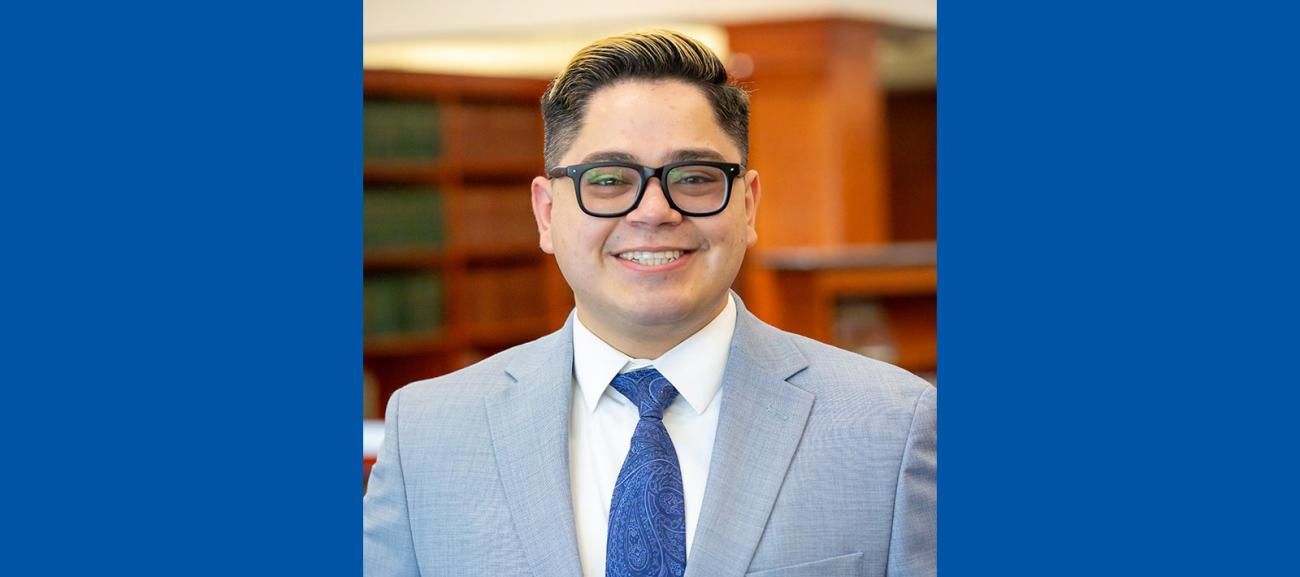
Magaña has family in his hometown who, to this day, he says are “astonished that someone from our rural village would have engaged in competitive speech and debate in high school, college, and then took those skills into law school and went on to become a lawyer.”
Magaña is an attorney at the Immigrant Legal Center + Refugee Empowerment Center in Omaha, a job he feels uniquely called to do.
“I am deeply moved by the immigrant experience,” he says. “I have the mental fortitude to be there for others when they have experienced immigrant trauma, and I have the cultural competence to do so in an approachable and ethical manner.
“When I mix that with my interest in American law, then I would find it disgraceful to not be an immigration lawyer. I truly believe this is my calling and where I am meant to be in the world.”
Attaining his legal education at Creighton was especially meaningful.
“Ignatian spirituality at Creighton helped me identify moral and cosmic reasons to not give up on the goals I set. I think I would have become an immigration lawyer somehow, some way. But Creighton Law helped me do so with a special focus on ‘finding God in all people, things and places.’”
‘Fleeing Iraq Shaped My Entire Compass’
Nibras Mazin Khudaida Basitkey, BSBA’22, was only 16 when her life as she knew it in Iraq came to an abrupt end. Islamic State fighters were descending upon her village and she and her family fled north, taking no belongings but what they were wearing.
They eventually immigrated to Lincoln, Nebraska; she finished high school, enrolled at Creighton in the Heider College of Business and in 2021 became a U.S. citizen.
Her goal was to “make things better for students back home,” driven by her desire to see everyone have the opportunities she had in the U.S.
Her family had always prized education, although attending school as a woman in Iraq was especially challenging. “People didn’t believe that women should go to school,” she notes, remembering one teacher who told her she should “stay in the kitchen.”
People in her village constantly questioned her family for sending her to school, but her father, a strong advocate for education, insisted she go.
After she graduated from Creighton with her business degree, Basitkey took a position with the Atlantic Council, a nonpartisan international development organization, and moved to Washington, D.C. She is currently an assistant director, focusing on women’s entrepreneurship and developing the overall Middle East economy.
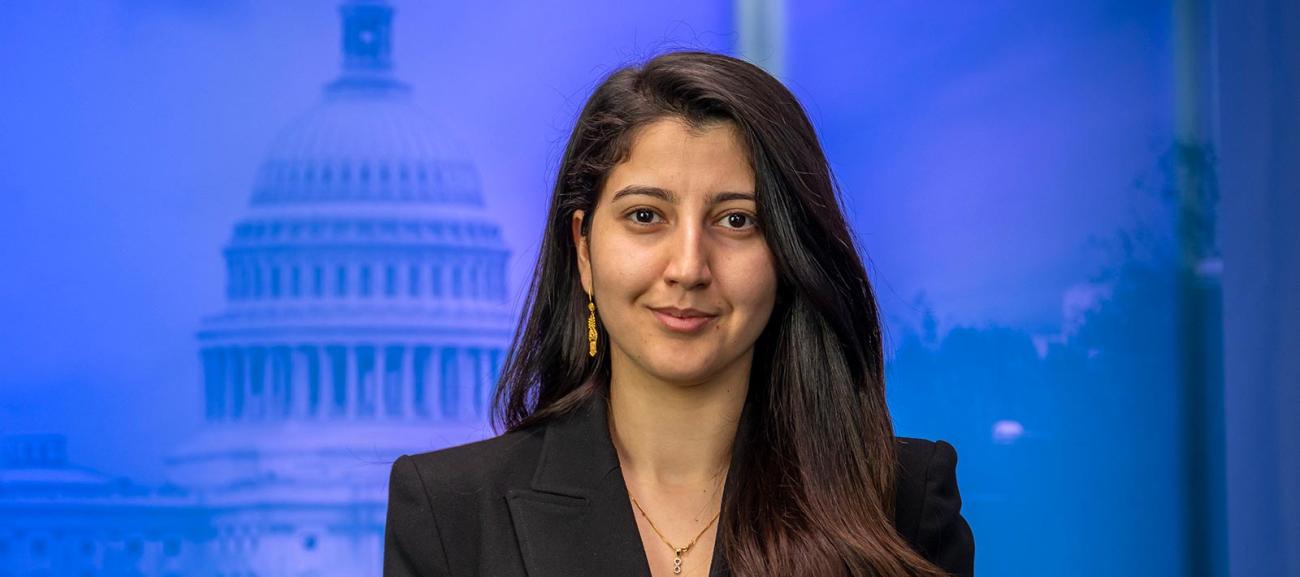
“Fleeing Iraq as a refugee wasn’t just a chapter in my life — it shaped my entire compass,” she says today. “Witnessing the hardships faced by refugees, especially women, ignited a passion in me to fight for their fundamental rights.
“And my experiences with limited education and cultural restrictions in Iraq fuel my advocacy for girls’ education,” Basitkey says. “I work in a field where I am able to empower women entrepreneurs in the region through education, mentorship and training, so they can contribute to the society and economy as a whole, for the betterment of all.”
A powerful experience for her was returning to Iraq with her father seven years after leaving: “The conflict was over in our area and our towns were liberated by then.” However, many of the people who had lived there were gone.
“Many houses were destroyed after the battle with ISIS in Mosul and many more were completely emptied. Even though it was great to visit home, it wasn’t as it used to be. I want to try to make it home a few times a year to see my friends and loved ones.
Creating a Better Future for Others
Born in South Sudan, growing up in North Omaha and graduating from the Heider College of Business, Jacob Idra, BSBA’22, has merged his life experiences and educational preparation to create a better future for others.
He started ROSS (Republic of South Sudan) Leaders while still in college. Today the national nonprofit, headquartered in Omaha, serves youth by cultivating community through multifaceted, community-based education, health and wellness, and cultural engagement programs. He serves as founder and executive director.
“Knowing the importance of the work we were doing, I decided to use my business knowledge in the nonprofit space instead of taking the traditional route,” Idra says.
“We were a group of South Sudanese college students and young professionals who felt South Sudanese youth in Omaha were underserved and didn’t have the support nor the resources they needed to reach their goals.”
Many of the youth ROSS Leaders serves come from immigrant households, with parents who are working hard to provide for the family, “and they find themselves on an island, going through major life challenges or achievements themselves.
“Since most staff members came from that reality, we understand the difference a mentor or a group of like-minded peers can make. We’ve created a space where our students are supported by people who share and understand their struggles and cultural background.”
He says the organization is moving away from using “refugee” to describe its students or families. “From our perspective as immigrants, yes, we are children of refugees, but now we are United States citizens. We prefer to use terms such as South Sudanese-American or South Sudanese-African community members.”
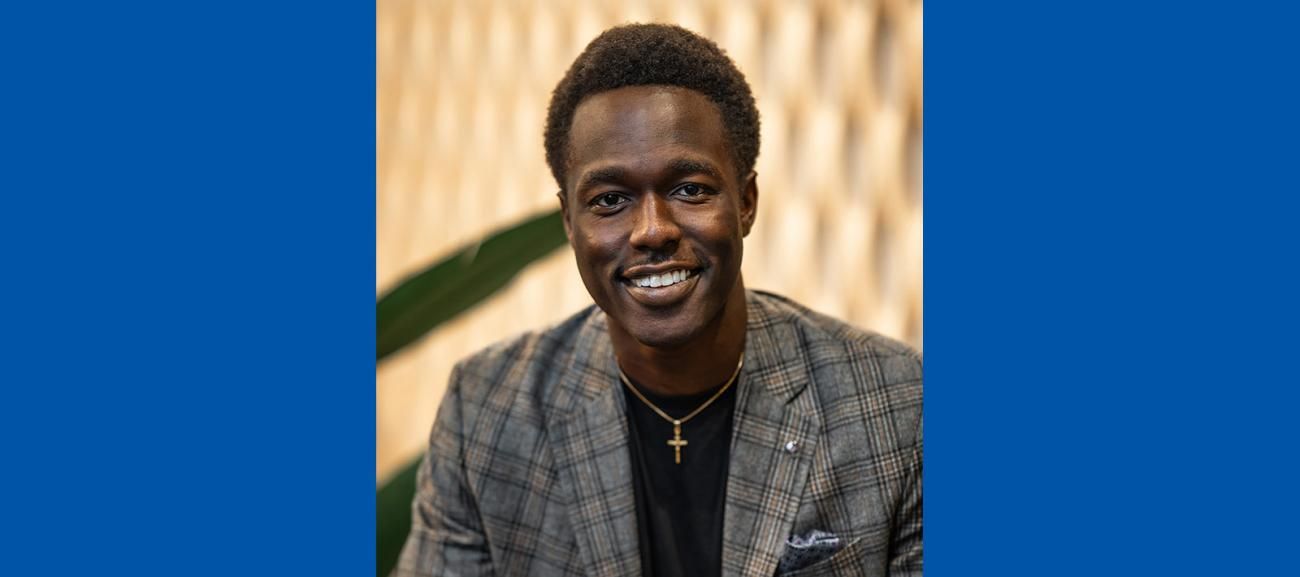
ROSS Leaders works relentlessly to ensure students’ futures aren’t hindered because of their financial limitations, and that, instead, “They are uplifted and recognized for the talents and creativity they contribute to the world,” Idra says.
“As mentors, coaches, big brothers and big sisters, we try to make sure our students are prepared for the opportunities life presents to them. That also means making sure we build the right support systems to overcome life’s challenges when they arise as well.”
He will never forget a conversation he had with a community supporter who told him, “It’s like Omaha doesn’t see you guys. You have 20,000 people here, invisible in plain sight.”
“After hearing that,” Idra says, “I made a promise to myself that we would be seen.”
He is especially pleased that many other South Sudanese leaders across the country have expanded the ROSS Leaders mission in their communities, making it unique to their cities and the students they serve.
“There are so many young, motivated, intelligent and resilient South Sudanese leaders who are making monumental moves in their respective communities, and ROSS Leaders has become the platform that keeps us all connected.”
A Lesson in Forgiveness
Zoran Grabovac, EdD’22, was playing happily in his native Bosnia and Herzegovina when long-simmering ethnic tensions tore his childhood apart.
At 9 years old, it was a surreal experience. Having moved with his family in 1993 from his hometown of Trebinje to Serbia, where his father was a professional soccer player and his mother worked in hospitality, life was carefree, consisting of school, neighborhood football fields (European ones), tree-climbing and all the mischief of a happy childhood.
The Yugoslavian civil war had prompted the move to Serbia, and when his parents saw that things were not improving, they made the difficult decision to move to the U.S. He and his family eventually landed safely in Des Moines, Iowa, in 1998. Today he is a global privacy manager with John Deere, the agricultural machinery and technology organization.
When he was young, Grabovac’s mother urged him to forgive those who spoke evil, even those wishing him death. Their animus was formed by a background of hate and resentment, she said, and it is difficult to overcome such historical influences.
He says he later realized that most people impacted directly by the Yugoslavian conflict fell into three categories: Those who forgot and moved on; those who continued to harbor fear, resentment and anger; and those who wondered what lessons could be learned.
Curiosity, Grabovac says, yields the best fruit.
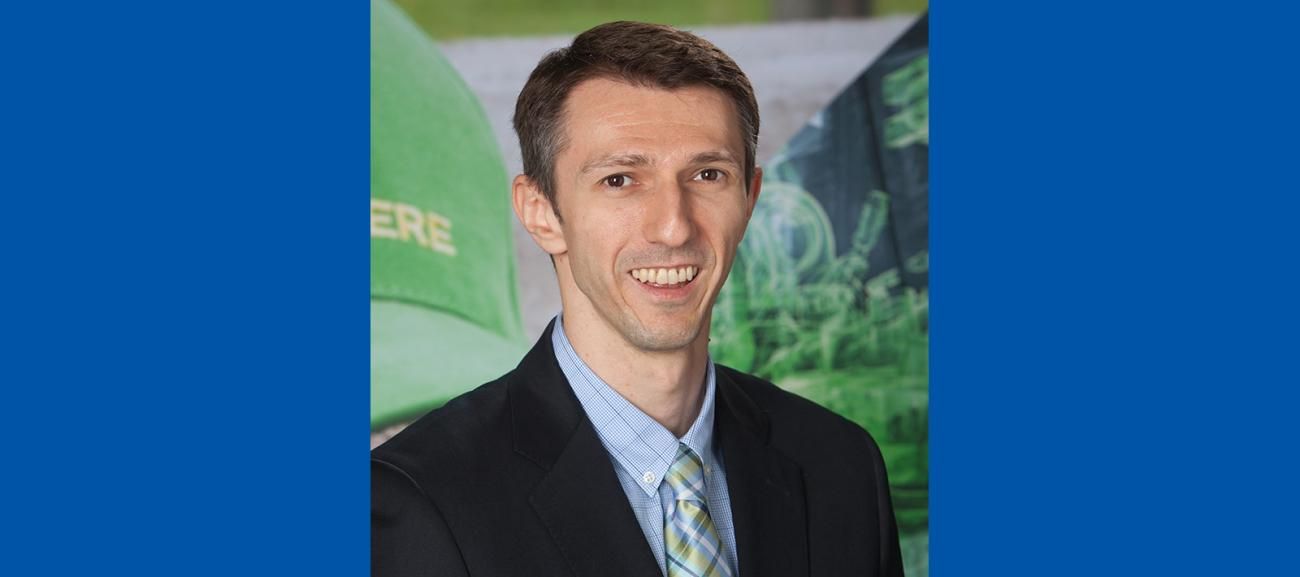
“What insights can we draw?” he says. “What can we learn by reflecting? How do we make sure this never happens again? How do we serve others to create an environment where opinions, thoughts, arguments, discussions, conversations lead to solutions rather than thousands of lost lives and millions displaced?”
The importance of finding common ground led Grabovac to pursue a doctorate in interdisciplinary leadership from Creighton, where he could join professionals from around the world in gaining a deeper knowledge and understanding of leadership and how to apply that to critical global issues. He graduated with his EdD degree in 2022.
He received the Outstanding Dissertation Award for “Examining the Relationship Between Mental Toughness and Openness to Diversity,” which he is hoping to publish.
His study proposes cultivating mental toughness and openness to diversity and different worldviews in the workplace, schools and other areas of life. “Mental toughness training may prove to be a key ingredient to support increased openness to diversity, so people can constructively work and live with others who are different from them and have divergent ideas,” Grabovac says.
“These skills are foundational to living a healthy and happy life,” he adds, “helping people explore emotions and become aware of how our past experiences shape our emotions, thoughts and actions, and impact us and others around us. They also help us grow and persevere through challenges and ultimately gain confidence.”
Padilla Presents at Global Refugee Forum
Decades-long research on refugee issues took Creighton’s René Padilla, PhD, vice provost for Global Engagement, to Geneva, Switzerland, late last year to present at the Global Refugee Forum.
Padilla’s interest in the plight of refugees began in the early 1990s, documenting disabilities sustained by political prisoners in Latin America for the United Nations Commission on Human Rights. He then became part of a special evidence review team organized by Madeleine Albright, then-U.S. ambassador to the UN, to analyze data coming out of the civil war in Rwanda.
He came to Creighton in June 1994 after the team finalized its review, which indicated widespread violence between ethnic groups in Central Africa, as evidenced by sharp increases in disabilities such as severe psychological trauma and physical disfigurement or maiming.
“By July of that year additional evidence showed the violence between groups had accelerated to outright genocide, and in less than three months more than 1 million Tutsi were dead and over 2 million had left Rwanda to seek refuge in neighboring countries,” Padilla says.
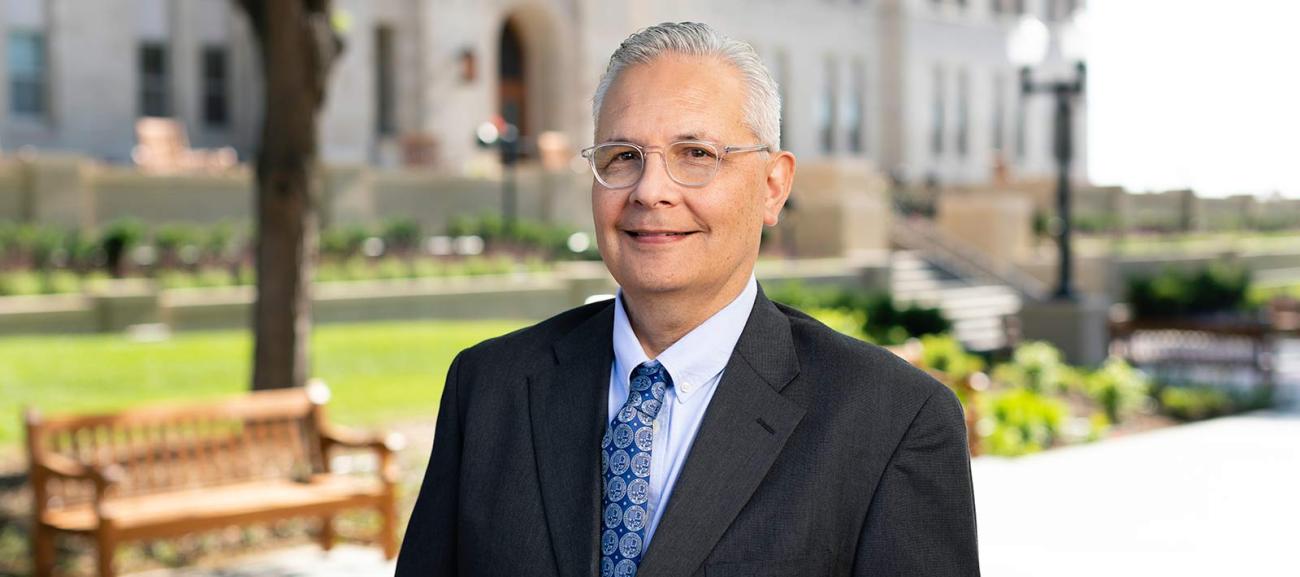
Although Rwandan refugees didn’t immediately arrive in the U.S., Padilla says he became aware of refugees from other war-torn regions settling in Nebraska.
Because he was teaching courses on mental and community-based health in Creighton’s occupational therapy program, Padilla began collaborating with schools and healthcare and nonprofit organizations on addressing psychological distress and challenges caused by forced migration, displacement or relocation.
In 1999, while studying for his PhD at the University of Nebraska-Lincoln, he learned firsthand from Yazidi refugees from Iraq about the depth and long-term impact of such trauma.
“They introduced me to something I had not yet truly considered — deep pain and guilt over leaving behind relatives and friends with disabilities. They had hoped their enemies would have mercy, but they learned that rarely was the case, and they often had no idea what had happened with their loved ones,” he says.
Limited mobility, lack of accessible transportation and inadequate infrastructure make it difficult for individuals with disabilities to flee quickly and safely. Scarce resources, including medical care and humanitarian aid, also disproportionately affect people with disabilities, Padilla says.
In 2014, Padilla was accepted to the United Nations Development Programme (UNDP) Consultant Roster to work on assessing workforce integration programs for people with disabilities across the world. He has focused mostly on countries where there has been a significant displacement because of war, climate disasters, etc. He was invited to be a member of the UNDP’s Civil Society Advisory Committee in 2018 and has been reappointed for a second five-year term.
“One of the main issues refugees and forcibly displaced persons with disabilities face is that a small fraction of the aid intended actually reaches them,” Padilla says. “Direct and indirect foreign aid across the world each year is around $300 billion, but it is chipped away through bureaucracy and corruption so that only an estimated 30-50% reaches the intended recipients.”
Padilla attended a conference sponsored by the International Inequalities Institute of the London School of Economics and Political Science in 2019 and learned about the emerging field of humanitarian economics. He was awarded a nonresidential fellowship and grant to conduct research on conditional cash transfer systems as potential vehicles to implement humanitarian aid that could meet immediate needs while also creating long-term opportunities for families and people with disabilities.
All of this led to a series of global collaborative projects Padilla was involved in, systematically reviewing humanitarian aid systems to determine which type works best.
“We have been able to show that specific conditional cash transfer arrangements are successful in getting about 70% of the aid to intended recipients, including people with disabilities. This is accomplished while simultaneously supporting governmental and nongovernmental systems.”
Because of this work, the United Nations High Commissioner for Refugees (UNHCR), specifically the Division of Resilience and Solutions, nominated Padilla to speak at the Global Refugee Forum to help country representatives consider how aid could be better implemented.
He presented his workshop, Enhancing Sustainable Humanitarian Chains to Guarantee a Healthy Environment in Refugee Settlements, in Geneva in December, at which time he also had an opportunity to speak one-on-one with nine different groups representing a wide variety of countries.
Going forward, Padilla and collaborators are finalizing several articles on humanitarian economics, and even a possible book, and he is hopeful of involving Creighton students and researchers.
Engaging with the Refugee Community
“Accompanying refugees is integral to our Jesuit, Catholic identity and mission,” says Becca Huju, BA’11, program manager for local community engagement at the Schlegel Center for Service and Justice (SCSJ) on the Omaha campus.
She adds that the Rev. Pedro Arrupe, SJ, the 28th superior general of the Society of Jesus and often considered the “second founder” of the Jesuits, named work with refugees a priority for the order and founded the international Jesuit Refugee Service (JRS). “And Pope Francis calls on us to welcome, protect, promote and integrate migrants and refugees,” she says.
Omaha is home to thousands of refugees from dozens of countries and Huju says students are frequently inspired by building relationships with the hard-working, resilient new community members.
“We have much to learn from our refugee neighbors, and together we work to create a more welcoming community. It’s a mutually beneficial experience for all involved.”
Volunteer and educational opportunities through the SCSJ are plentiful and include direct service, migration justice education, donation drives, Service & Justice Trips, Faith & Justice Internships, partnering with JRS to advocate for refugees with legislators, and more.
For example, in the weekly semester-long 402 Service Program, students serve as conversation partners with refugees in the community learning English.
“They get to know people and learn about their lives and hopes for the future, and they build friendships. Students also find these cross-cultural experiences valuable for their own professional development, as it gives them skills to work with diverse populations in whatever future career they are pursuing.”I
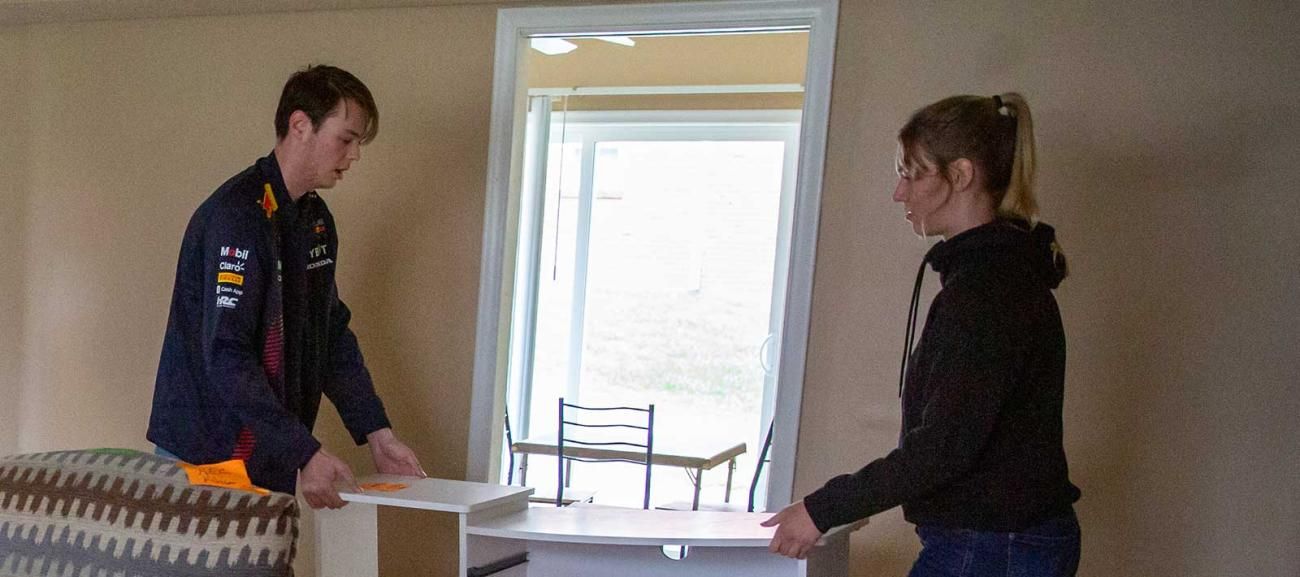
In another service program with the Immigrant Legal Center + Refugee Empowerment Center, Nebraska’s largest immigrant and refugee focused nonprofit that welcomed 425 refugees from around the world in 2023, SCSJ student volunteers help set up homes for refugee families by moving furniture, cleaning, etc.
The SCSJ also offers Refugee Community Orientation a few times each year, a six-hour program for faculty, staff and students. “Participants engage with the Jesuit commitment to accompany, serve and advocate for refugees through learning about, and interacting with, Omaha’s refugee community,” she says.
Participants visit a local agency that serves the refugee community, learn about refugee healthcare needs, help in a naturalization class, or hear a story from a refugee while enjoying lunch from a refugee-owned restaurant.
A new program this year, Mini Refugee Community Orientations, involves the SCSJ partnering with psychology and nursing professors to present in classrooms and invite students to reflect, engage in social analysis and participate in advocacy opportunities.
Creighton staff also have been directly involved with helping newly arrived refugees in the Omaha community through the University’s donation of used furniture.
Hundreds of pieces that furnished the decommissioned Kiewit and Gallagher residence halls were evaluated, prepared, removed and delivered to local organizations the Furniture Project and Restoring Dignity.
Adam Stafford, BA’03, MS’08, director of Housing and Auxiliary Services, says more than 1,500 pieces from Kiewit Hall were donated in 2023, including mattresses, beds, desks and dressers. “Our beds are particularly needed by these organizations, and we’ve provided over 600 beds.”
Are you interested in helping refugees in your community?
Becca Huju, BA’11, says alumni interested in getting involved with refugee efforts could participate in the national virtual JRS Advocacy Day annually. She also suggests contacting local refugee resettlement agencies for volunteer opportunities that include home set up, English classes, mentorship, sponsorship of families and more. Alumni who are employers or work in hiring could consider hiring refugees and offering professional opportunities and mentorship.














